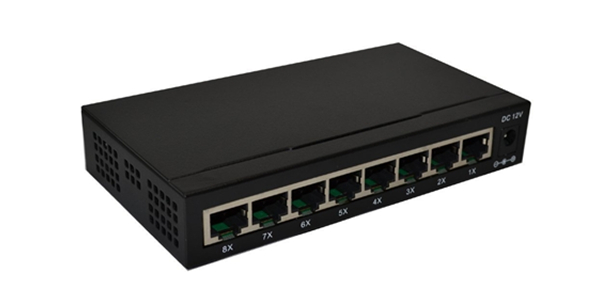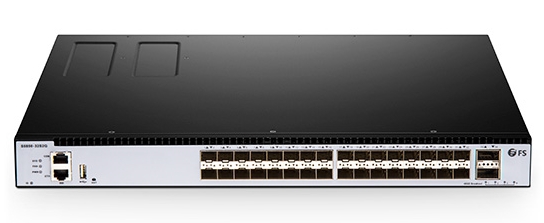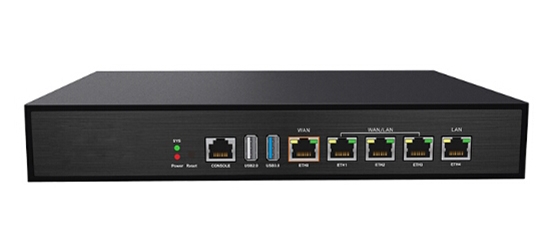Sometimes, people may easily get confused about the difference between hub, switch and router. And some even use the three terms interchangeably to refer one box for they look like much the same on the outside. So, are they really the same thing? How to make a choice between them? That’s start with the basics of them first. Hub vs switch vs router, what’s the difference?
A hub operates on layer-1 to connect network devices for communication, which is the simplest device among them. It simply repeat everything they hear. When a packet arrives at one port, it is copied to the other ports so that all segments of the LAN can see all packets.
A network switch works on layer-2 of OSI model of communication. It can do everything a hub does with higher efficiency. It can recognize the intended destination of the information that they receive, so they send that information to only the computers that are supposed to receive it. Since switch can send and receive information at the same time, it can transfer data faster than switch.
A router can operate at Layer-3 of OSI model of communication, which is the most complex device and the only one of these three devices that will allow you to share a single IP address among multiple network clients. It forwards data packets along networks, enabling computers to communicate and pass information between two networks—such as between your home network and the Internet. This capability to direct network traffic is what gives the router its name.
To build a home networking system, you need some basic hardware such as a router, internet switch or hub, network adapters, and network cables. When deciding between the network switch vs router vs hub, the first important piece of networking hardware for your home network may be a gigabit switch or hub.
- For small home networks, hubs used to be widely applied for its relatively low price. However, the price difference between hubs and switches has shrunk over the years to the point that there really is no reason to buy a hub today. Also broadcasting traffic through a hub can cause network congestion on busy networks, and because all devices connected to the hub see all of the traffic on the network, it is not particularly secure.
- A switch, on the other hand, is essentially an intelligent hub. A switch knows a little bit about the devices that are plugged into each of its ports and uses that information to send network traffic that it receives from one device, directly to the destination device. This causes less congestion on the network and is more secure than a hub.
- A router or a modem with a built-in router is also an nice choice for setting up a home network that will connect to the Internet. A router is actually a completely different device, which is more complicated and smart than the former two. Routers come in all shapes and size—from the small, four-port broadband routers that are very popular right now to the large industrial strength devices that drive the internet itself.
Hub vs Switch vs Router, which one should you choose? Generally speaking, if you just want to connect your computers, both hubs and switches can do the job; however, if you are going to link your computers to the Internet via one modem, a router or a modem with a built-in router is needed. With a higher price than hubs and switches, routers can typically provide built-in security, such as a firewall. If you’re building a new LAN from scratch, an all-in-one unit that combines a router, Ethernet switch, and wireless access point is your best value. It is also the most compact and simplest to install, since all of the cables will connect to a single, centrally located unit.
Related Article: Data Switch vs Hub in a Home Network
Related Article: What’s the Difference: Hub vs Switch vs Router




